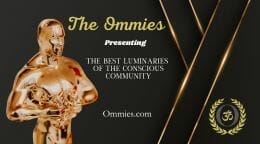Pleasure and Pain in Recovery

By Mary Cook, M.A., R.A.S.
It is in our nature to seek pleasurable and rewarding states. When we live in an environment that chronically fails to meet our primary psychological needs or does not support healthy growth and fulfillment, we look for other means to experience a sense of pleasure and reward. When our honest, vulnerable expressions encounter repeated rejection, our real self with our genuine needs, wants, thoughts and feelings goes underground. We refocus attention on what works best for us in an unhealthy environment. Primary needs are given up for secondary gains.
This means our world begins to feel smaller. Since secondary goals can never compensate for primary needs, we increasingly experience constriction, oppression and frustration. Defenses attempt to dull awareness of the pain from our losses.
When our need for a safe, secure, nurturing experience is not met sufficiently, we are vulnerable to idealize isolation and recklessness, or to seek a drugged state that numbs emotional pain and allows us to feel pleasure. Or we might over-feed ourselves to stimulate the sense of reward and then deaden feelings through overloading the system. We may seek relationships where need and rejection or passive or aggressive codependency are re-enacted. We might become phobic and controlling in an attempt to create safety and comfort.
If our unique strengths and talents are not observed or valued, if our innate personality is not appreciated or understood, if our feelings and thoughts have no impact, if we’re not seen for who we are but only what someone wishes us to be, then these issues repeat in our lives over and over again. We may as a consequence, suffer low self-esteem or pursue goals for another rather than for what is best for us. We may become overly opinionated, bullying, manipulative or preachy as an attempt to compensate for the reverse earlier in our life. We might do things to deaden ourselves further from who we really are and what we truly want, to offset the pain. Perhaps we impose our needs and yearnings on others or pretend to be different than we really are to win acceptance.
We internalize our primary role models in childhood. When they are unhealthy, we find ourselves stuck in internal and external struggles, which reflect our caretakers’ themes. If anger, abandonment, control, compulsions, depression, disappointment, or deprivation were our caretakers’ struggles, there’s a very good chance that they will also be ours. So how do we let go of patterns adopted from environments that couldn’t tolerate vulnerability and honesty?
We are powerless to change negative circumstances that face us as long as we keep looking in the same direction. We are stuck when we are afraid to see how we got somewhere and when we are afraid to re-experience the pain that resulted in our present dilemmas. The solution is to fear the complete death of our real self and real life more than we fear facing the pain of our journey without defenses. Our eyes and hearts must be wide open in self-examination. We need to re-awaken our sensitivity and vulnerability to pain so that we can suspend our dispensing of it to ourselves and others. We must revisit our primary psychological needs and let go of our attachments to secondary defensive gains. We need to tear down walls we built against our understanding if we are to ever achieve healthy intimacy.
Mature love for ourselves and others is based on deep understanding, not control, dependency or apathy. Our real self always knows our true desires, needs, feelings, thoughts and purpose. We need to return to who we were before we began the deception of pretending, defending and denying. At one time we were fully alive and real moment to moment. In order to reclaim our truth, we must face the pain of its rejection again and not erect defenses, but stand firm in support of our highest good.
We need to provide for ourselves and allow others to help us develop an enriching, encouraging and challenging environment for actualizing our genuine self and a life that evolves from its unfolding. We could not do this earlier in our lives. It is recovery that gives us the opportunity to reach our greatest happiness, serenity and fulfillment and to share it with others. Healthy pleasure and reward come from our ability to embrace our highest inner truths and grow from our pain.
Click HERE to Connect with your Daily Horoscope!
About the Author
Mary Cook is the author of “Grace Lost and Found: From Addictions and Compulsions to Satisfaction and Serenity. Mary has 38 years of clinical practice and 29 years of university teaching experience. She is available for telephone and office counseling, guided meditation, and speaking engagements.
Connect with her at: WWW.MARYCOOKMA.COM
Her Facebook page is: https://www.facebook.com/pages/Mary-Cook/166903606690909
OMTimes Magazine is one of the leading on-line content providers of positivity, wellness and personal empowerment. OMTimes Magazine - Co-Creating a More Conscious Reality










